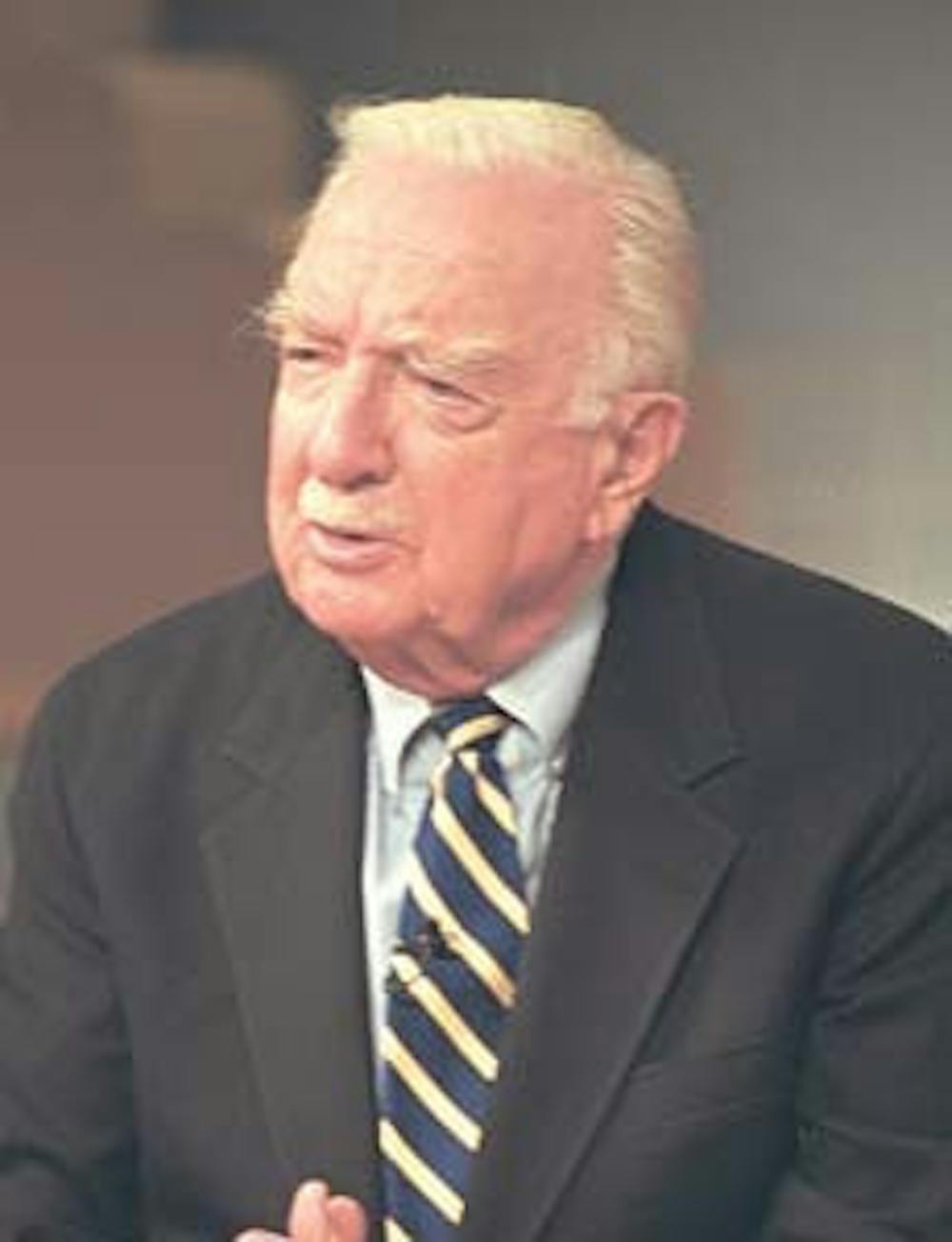The renowned television journalist and sponsor of the ASU school of journalism and telecommunication, known for being the "most trusted man in America," held a captive audience of approximately 440 students and faculty Wednesday.
Walter Cronkite paid his 18th annual visit to journalism school students, as he has come to visit the school every year since 1984 when the college was dedicated in his name.
He spoke to Bill Silcock's MCO 110 class Wednesday morning in Neeb Hall, answering questions ranging in topic from his career to his opinion on current news problems.
Silcock, an associate professor of journalism and broadcasting, hosted the forum inside the full auditorium, asking Cronkite questions that had been prepared in advance by his students.
Cronkite, who was an anchor, correspondent and managing editor for the CBS Evening News for over 30 years, said it is important for journalists to understand the history of their trade so they are not doomed to repeat mistakes.
"If one understands the history of journalism, they can recognize the errors that have been made," Cronkite said.
Cronkite said contemporary news coverage goes too far to make news entertaining.
"They water down news into features that are all on the evening news now," he said, and added that features are good, but don't belong in that time slot.
Cronkite was also asked what he thought about the level of media coverage of the "Beltway Sniper," gunmen who recently killed 10 and injured three others in the area surrounding Washington, D.C.
"The media did well in covering breaking news," he said. "But I got tired of the parade of psychiatrists who would sit there every night pontificating."
Broadcasting sophomore Garrett Midkiff said he arrived an hour early just to get a good seat to see Cronkite.
"I thought it was awesome," he said. "It's great to see someone who has made such a difference in journalism."
Journalism junior Katie Munley said she saw him last year when he visited and thought the different format was interesting.
"It's priceless to hear what he has to say," she said. "It's too bad students didn't have time to ask more questions. He's so unselfish and giving of his information."
Silcock said the opportunity to have Cronkite in his classroom was beneficial to his students.
"It's like touching a piece of history, because broadcast news is barely 50-years-old," he said. "To have the chance to meet him is incredible. It bridges the gap because he worked in print and broadcast journalism."
Reach the reporter at christina.viloria@asu.edu.




